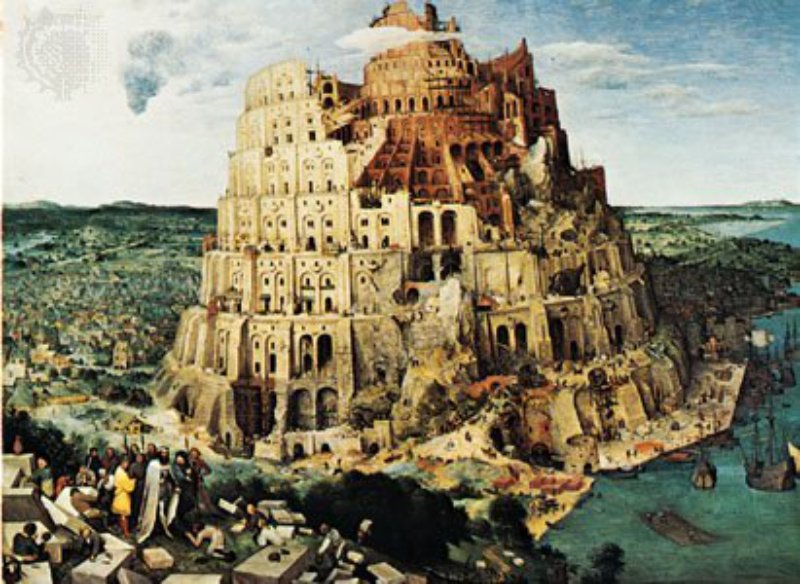The importance of this Communion meal is shown by one of my favourite Old Testament stories, from very ancient times, of the Tower of Babel in Genesis, chapter 11. I remember it well from my Sunday School days, building a tall tower is what we young boys dreamt of.
Verse 1 reads: “Now the whole world had one language and a common speech”
And verse 4: ‘Then they said, “Come let us build ourselves a city, with a tower that reaches to the heavens, so that we may make a name for ourselves.”’
This story tells of people who took great pride in their skills and knowledge, and their focus was completely on themselves.
In trying to build a tower which reached to the heavens, they wanted to achieve paradise, for themselves, through their own efforts, and to be independent of God’s rule.
This is a timeless story, for it reminds me of our world today. It’s not about building skyscrapers, but building a paradise by ourselves and for ourselves. The Humanist outlook that is prevalent today in the media, rejects all ideas of God and puts its trust in scientific and technological progress, and human reason and education, to turn our earth into a perfect place of harmony, without God.
There is a touch of humour in verse 5, which reads: “The Lord came down to see the city and the tower.”
This is like humanity falling on a banana skin, for it pictures the tower as a complete failure, where rather than reaching the heavens, it was so small that God needed to come down from the heavens to even be able to see it.
In verse 6 God states, “If as one people speaking the same language, they have begun to do this, then nothing they plan to do will be impossible for them. Come let us go down and confuse their language”.
How do we reconcile “nothing is impossible for them” with the tower being a complete failure?
I would like to highlight three points from this story:
First: whatever skills, talents, and possessions we may think are ours, they are only on loan; those gifts are given by God for a short time to help in our fallen world of decay and death, and we will eventually lose them all.
We are meant to take delight in His gifts, and enjoy using them as He intended, but always giving Him the glory. To worship those gifts and reject the giver simply attaches us to that world of decay and death.
Second: no matter how high that tower, those people would never have reached their goal.
For we are not separated from God and his Heavenly Kingdom by physical dimensions like distance, space or time. What separates us is a spiritual dimension, caused by our sin, it created a huge gulf between ourselves and God. When we take his gifts and use them for ourselves in our own way, as in the Tower of Babel, or Humanism of today, it only widens that gulf; it pushes us further away from God, and causes disunity and conflict with one another.
So, when God said, “nothing they plan to do will be impossible for them”, it meant that no sin will be beyond them. God took back the skill of a common language not as a stern punishment, but to stop us doing too much harm to ourselves. It was a kind and gentle way to limit the extent of our sin.
This verse shows God as a loving and caring father.
But the third and most important point from these verses is that the story doesn’t end there. For our Heavenly Father acted where we cannot, and has bridged that gulf of sin for us.
It didn’t require a tall tower – just a cross – on which his son Jesus paid the penalty for our sin, so that we can be forgiven, and reunited with God. None of our skills can help to gain forgiveness, it is a gift of grace from God. All we can do is simply repent, turn away from sin by turning towards Jesus, and trust in what he has done for us.
Unlike our temporary gifts, this gift of new life in his Kingdom is never ending.
In thankfulness to God we come to this table now, to celebrate his great gift to us.
This is not only a time to remember, for here we are confronted by the reality of Jesus death and resurrection, and how, through faith in him, that transforms our lives, both now, and in eternity.

0 Comments